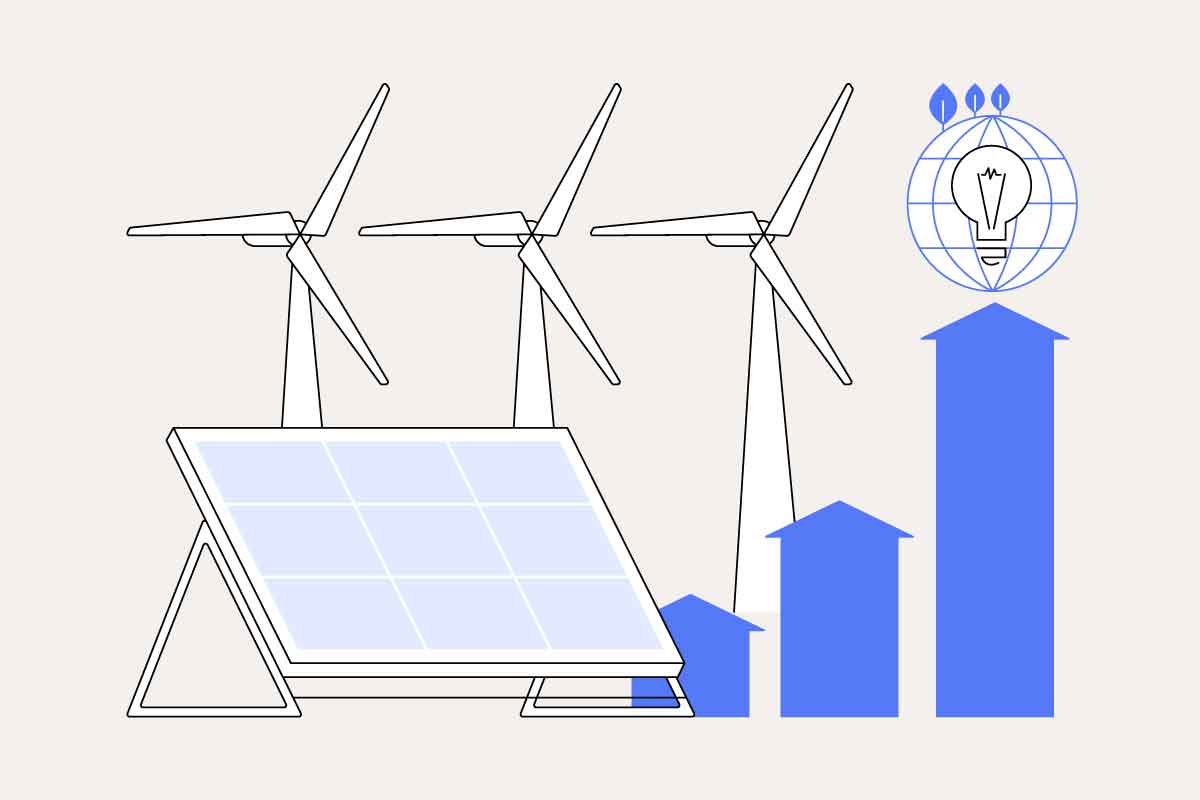Choosing the right energy provider for your business is a crucial decision that can significantly impact your operating costs. Octopus Energy has gained a reputation as a reliable and innovative energy provider in the UK, known for its transparent pricing and green energy options. In this article, we review Octopus Energy business prices and features, helping you understand whether it could be the right fit for your company’s needs.
Overview of Octopus Energy for business
Octopus Energy stands out in the UK energy market for its commitment to providing affordable, renewable energy to both households and businesses. They have positioned themselves as a forward-thinking energy provider, using technology to deliver innovative solutions and better customer service. Their focus on green energy and transparent pricing makes them a popular choice for environmentally conscious businesses.
Octopus Energy business prices list
Rates offered may vary depending on your location, energy consumption, and the specific contract terms you choose. It’s always best to contact Octopus Energy directly for the most accurate and up-to-date pricing information.
| Tariff | Standing Charge | Unit Rate (per kWh) | Contract Length |
|---|---|---|---|
| Fixed tariff | 25p – 30p per day | 18p – 22p | 12 to 24 months |
| Flexible tariff | 28p – 33p per day | 20p – 25p | Rolling contract |
| Agile Octopus tariff | 25p – 30p per day | 10p – 35p (variable) | Flexible, no long-term commitment |
Explanation of pricing components
- Standing charge: This is a fixed daily charge that you pay regardless of how much energy you use. It covers the cost of maintaining your connection to the energy network.
- Unit rate (per kWh): This is the amount you pay for each kilowatt-hour (kWh) of energy you use. The unit rate varies by tariff, with the Agile tariff offering a wide range of prices depending on market conditions.
Octopus business energy tariffs
Octopus Energy offers a range of tariffs for business customers, designed to suit different types of organisations. Whether you run a small startup or a larger enterprise, Octopus Energy aims to cater to your energy needs with flexible and cost-effective plans.
1. Fixed tariff
The fixed tariff is ideal for businesses that want price certainty. With this option, your energy rates are locked in for a set period, typically one or two years. This means that even if market prices fluctuate, your rates remain the same, providing stability for your business’s budgeting and financial planning.
- Best for: Businesses that prefer predictable costs and want to avoid market volatility.
- Contract length: Usually 12 to 24 months.
- Renewable energy: 100% green electricity as standard.
2. Flexible tariff
The flexible tariff (often called the variable tariff) is more suited to businesses that can handle a bit of risk in exchange for potentially lower costs. The rates on this tariff can change in line with the wholesale energy market prices, which means you might pay less when market prices are low, but more if they rise.
- Best for: Businesses that can afford to take advantage of market fluctuations.
- Contract length: Rolling contract with no fixed end date.
- Renewable energy: 100% green electricity.
3. Agile Octopus tariff
Octopus Energy’s Agile tariff is a unique offering for business customers who can adapt their energy usage to off-peak times. This innovative tariff provides half-hourly pricing, which means your rates can change up to 48 times a day based on wholesale energy costs. Businesses with flexible energy needs can benefit from significantly lower rates during off-peak periods.
- Best for: Businesses with flexible energy use, such as those operating outside of typical business hours.
- Contract length: Flexible, with no long-term commitment.
- Renewable energy: 100% green electricity.
Features that make Octopus Energy stand out
Beyond its pricing and tariffs, Octopus Energy provides several key features that make it a top choice for UK businesses looking for a sustainable energy partner.
1. Green energy commitment
Octopus Energy’s commitment to renewable energy is one of its strongest selling points. All of their tariffs include 100% green electricity as standard, which means your business can reduce its carbon footprint without paying a premium for sustainable energy.
2. Transparent pricing
Transparency is a core value at Octopus Energy. They provide clear information on how their tariffs are structured and avoid hidden fees, making it easier for businesses to understand their energy bills and budget accordingly.
3. Excellent customer service
Octopus Energy has earned a reputation for its customer service, consistently scoring high in customer satisfaction surveys. Business customers benefit from a dedicated support team that understands the specific needs of organisations, ensuring a smooth and hassle-free experience.
4. Innovative technology
Octopus Energy leverages technology to enhance its services. Their online platform and app allow businesses to manage their energy usage in real-time, receive insights into consumption patterns, and even predict future energy needs based on historical data. This can be particularly useful for businesses looking to optimise their energy efficiency.
Switching to Octopus Energy for your business
Switching to Octopus Energy is a straightforward process designed to minimise disruption to your operations. Once you sign up, Octopus Energy manages the switch for you, ensuring there is no break in your energy supply. Their technology-driven approach also means the entire process is quick and easy, with minimal paperwork required.
Pros and cons of Octopus Energy for businesses
To help you make an informed decision, here’s a quick summary of the advantages and potential drawbacks of choosing Octopus Energy for your business.
Pros
- 100% renewable energy included as standard in all tariffs.
- Transparent pricing with no hidden fees or complicated contract terms.
- Innovative tariffs like the Agile Octopus, which can significantly reduce costs for flexible businesses.
- Excellent customer service with high ratings in satisfaction surveys.
- Flexible contract options to suit businesses of different sizes and energy needs.
Cons
- Variable tariffs can be risky for businesses that need consistent energy costs.
- Agile tariff requires flexibility in energy usage, which may not be suitable for all businesses.
- No bespoke tariffs for larger enterprises with highly specific needs, although they offer competitive rates.
Is Octopus Energy right for your business?
Octopus Energy’s business tariffs are best suited to small and medium-sized enterprises (SMEs) that value green energy and are looking for straightforward pricing options. If your business has flexible energy requirements, the Agile Octopus tariff can be an excellent way to reduce costs by capitalising on market rates. For larger enterprises or those with highly specific energy needs, it might be worth exploring more tailored energy solutions.
Final thoughts – Octopus Energy business prices review
Octopus Energy has carved out a niche as one of the most forward-thinking energy providers in the UK. With its strong commitment to sustainability, transparent pricing, and innovative tariffs, it’s an appealing option for many businesses. If you’re considering switching your business energy supplier, Octopus Energy’s focus on technology and customer satisfaction makes it a compelling choice.
For more information or to get a personalised quote, visit the Octopus Energy website. For more from us, see our guide to the best business energy providers.
Octopus Energy business prices FAQ
Octopus Energy charges peak usage rates typically ranging from 22p to 35p per kWh, depending on the tariff. The Agile Octopus tariff has variable peak rates, which can be higher during high-demand periods but may drop significantly during off-peak hours.
For the Agile Octopus tariff, off-peak rates can go as low as 10p per kWh. Businesses with flexibility in their energy usage can take advantage of these lower rates to reduce costs during times of lower demand.
While Octopus Energy primarily focuses on SMEs, businesses using more than 100,000 kWh per year can negotiate rates that may be lower than the standard tariffs. Custom pricing can lead to savings, with unit rates potentially dropping by up to 10% for larger energy users.
Fixed tariff contracts with Octopus Energy typically include exit fees ranging from £30 to £50 per fuel type if you terminate the contract early. However, the flexible and Agile tariffs have no exit fees, offering more flexibility if your energy needs change.
For those on the Agile Octopus tariff, prices can change up to 48 times per day, reflecting real-time wholesale market fluctuations. Fixed tariff customers, however, enjoy stable prices for the duration of their contract, which can last up to 24 months.
Octopus Energy’s fixed tariffs usually have a minimum term of 12 months, with options extending up to 24 months. The flexible and Agile tariffs do not require a long-term commitment, making them suitable for businesses seeking short-term arrangements.
Standing charges with Octopus Energy range from 25p to 33p per day, depending on the chosen tariff. This is competitive compared to industry standards, with similar providers often charging 30p to 40p per day for business energy accounts.
Businesses switching to Octopus Energy from standard variable tariffs can save up to 20% annually, especially if they leverage the Agile tariff’s lower off-peak rates. Savings depend on energy consumption patterns, but many SMEs report reductions of hundreds to thousands of pounds per year.
Octopus Energy’s fixed tariff rates typically range from 18p to 22p per kWh, which is often 10% to 15% cheaper than traditional business energy suppliers charging 25p per kWh or more. These savings can add up significantly over a standard 12 to 24-month contract.
For a small to medium-sized enterprise using around 50,000 kWh annually, the annual cost with Octopus Energy’s fixed tariff could be approximately £9,000 to £11,000, depending on the specific rates and standing charges. The exact cost varies with market conditions and energy consumption patterns.

